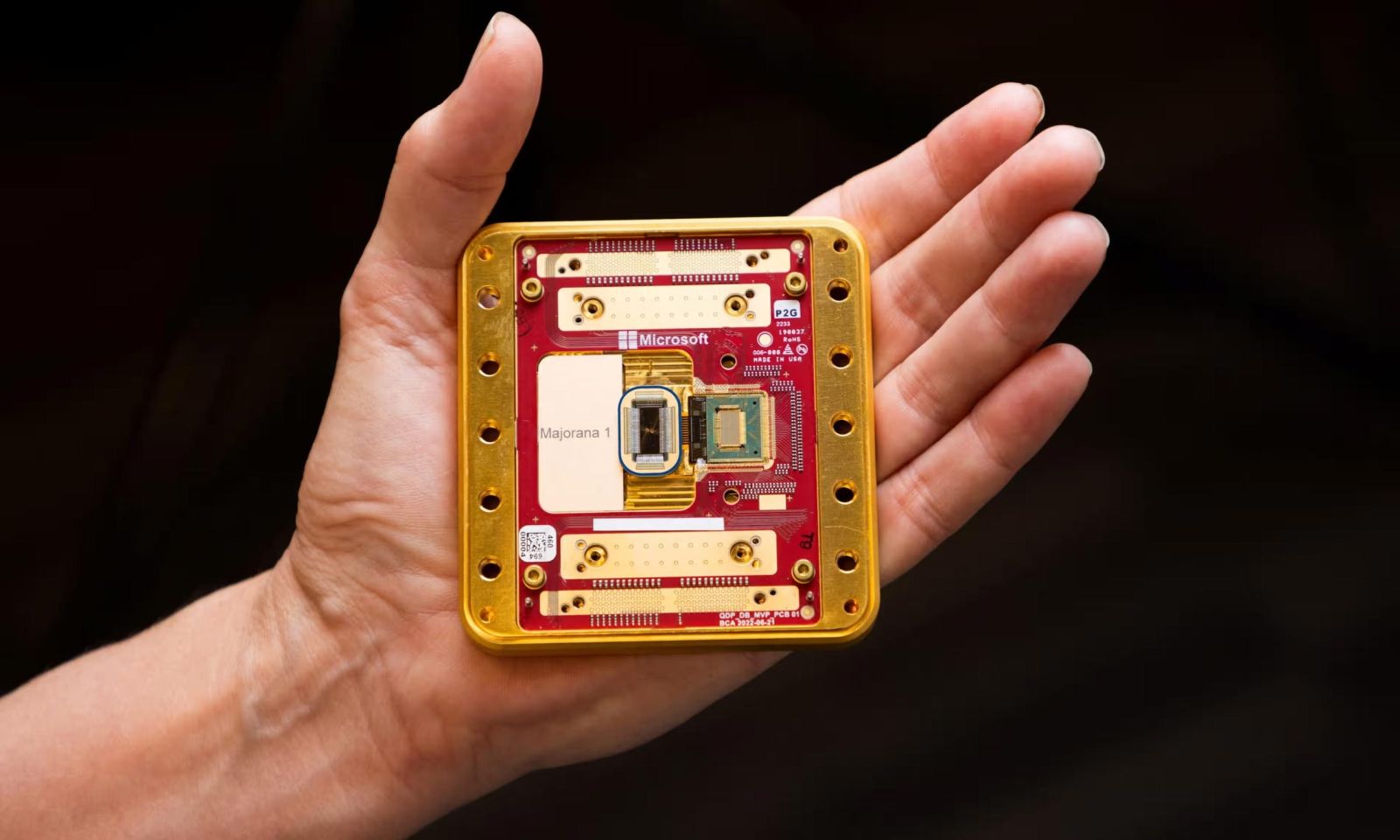Follow us on Google News (click on ☆)
This innovation relies on the use of topoconductors, materials capable of manipulating Majorana particles. These particles, previously theoretical, are essential for creating more stable qubits that are less sensitive to external disturbances. This technology could enable the construction of quantum computers with a million qubits, capable of solving problems currently deemed unsolvable.

The Majorana 1 quantum processor, a revolution in the field of quantum computing.
Credit: Microsoft
The development of Majorana 1 required the creation of a new composite material based on indium arsenide and aluminum. This material, designed atom by atom, stabilizes topological qubits, offering a promising path for large-scale quantum computing.
Microsoft has also developed a digital control method for qubits, simplifying their manipulation. This approach contrasts with current analog methods, which are more complex and less scalable. Digital control allows for better error management and greater ease of scaling.
The company has received support from DARPA, an agency of the U.S. Department of Defense, to accelerate the development of this technology. Microsoft is one of two companies selected for the final phase of DARPA's US2QC program, aimed at creating an industrial-scale quantum computer.
Finally, Microsoft is collaborating with partners like Quantinuum and Atom Computing to explore the practical applications of this technology. These collaborations aim to create reliable quantum computers capable of functioning in tandem with artificial intelligence systems.
Majorana 1 represents a crucial step towards the realization of quantum computers capable of solving complex problems in chemistry, materials science, and other industrial fields. This technology could revolutionize the way we design materials, drugs, and catalysts by enabling precise and rapid calculations that were previously impossible.
What is a topological qubit?
A topological qubit is a basic unit of quantum computing that uses topological properties to maintain quantum coherence. Unlike traditional qubits, topological qubits are more stable and less sensitive to external disturbances.
These qubits exploit exotic particles called Majoranas, which can exist in specific materials known as topoconductors. Majoranas protect quantum information from errors, which is crucial for the reliability of calculations.
Creating topological qubits requires special materials, such as indium arsenide, which must be assembled with atomic precision. This complexity is offset by the advantages in terms of stability and scalability potential.
Finally, topological qubits pave the way for more powerful and reliable quantum computers, capable of solving complex problems in science and various industrial fields.